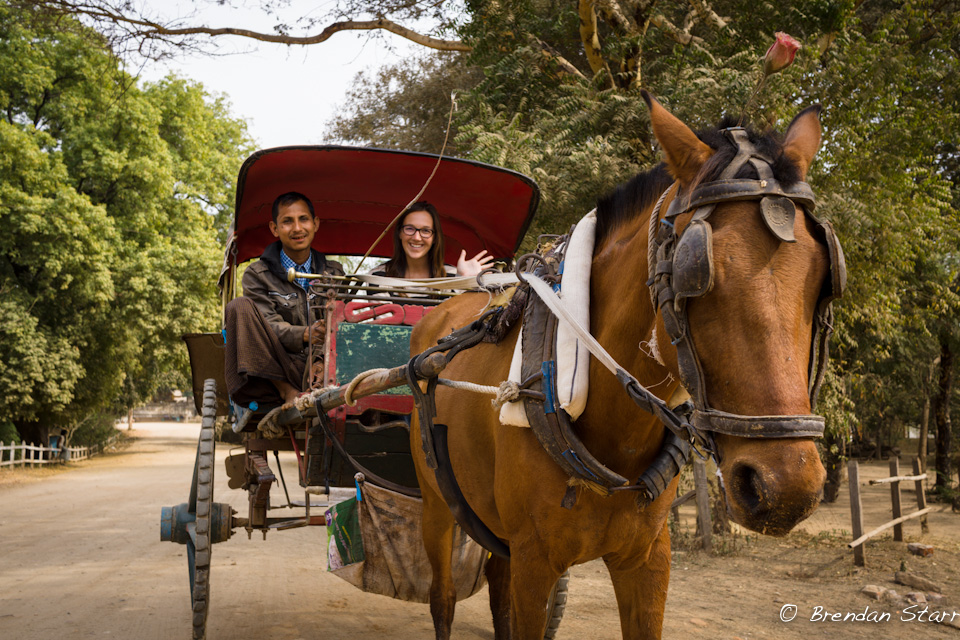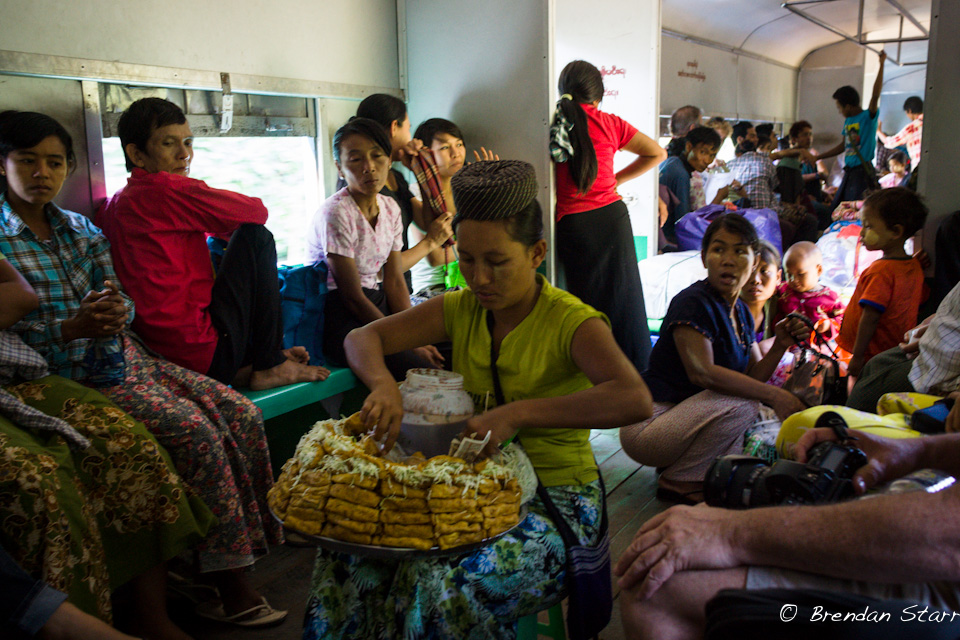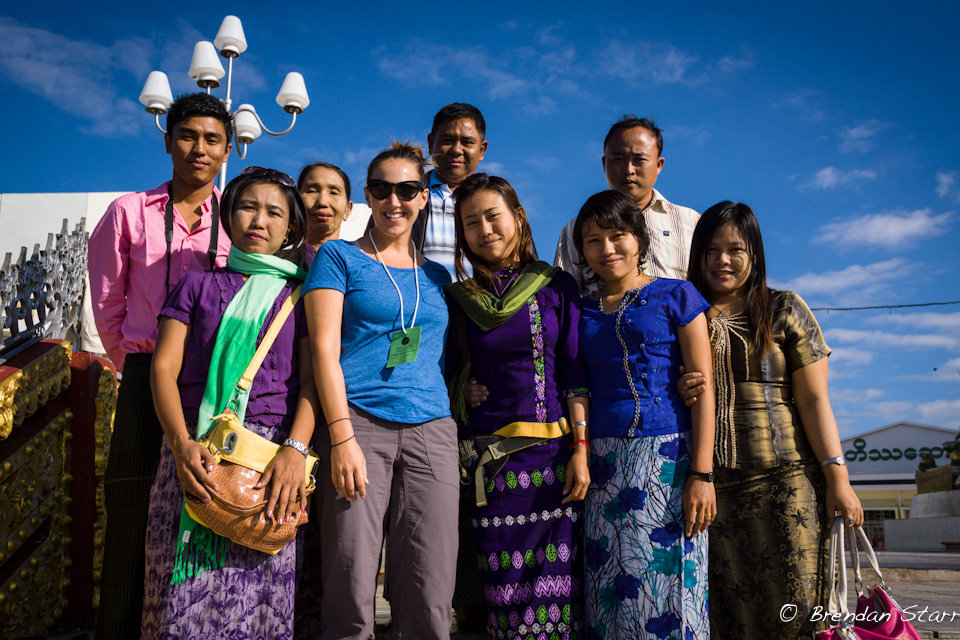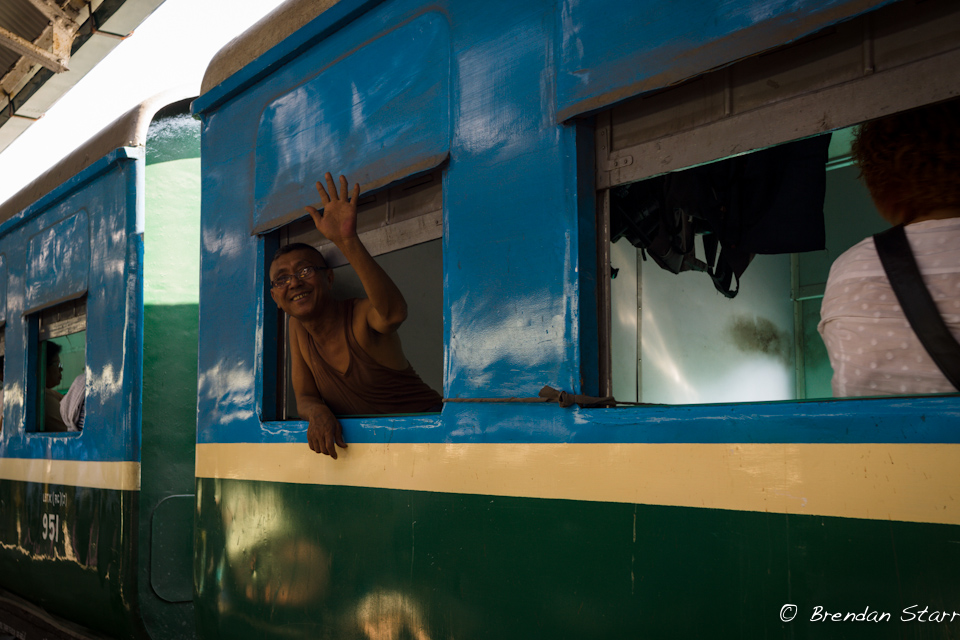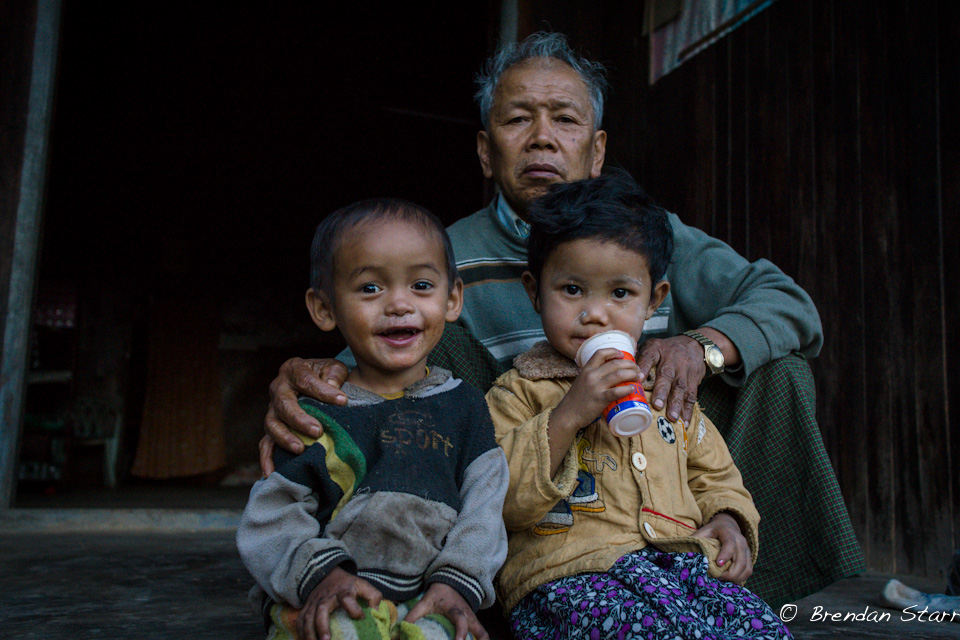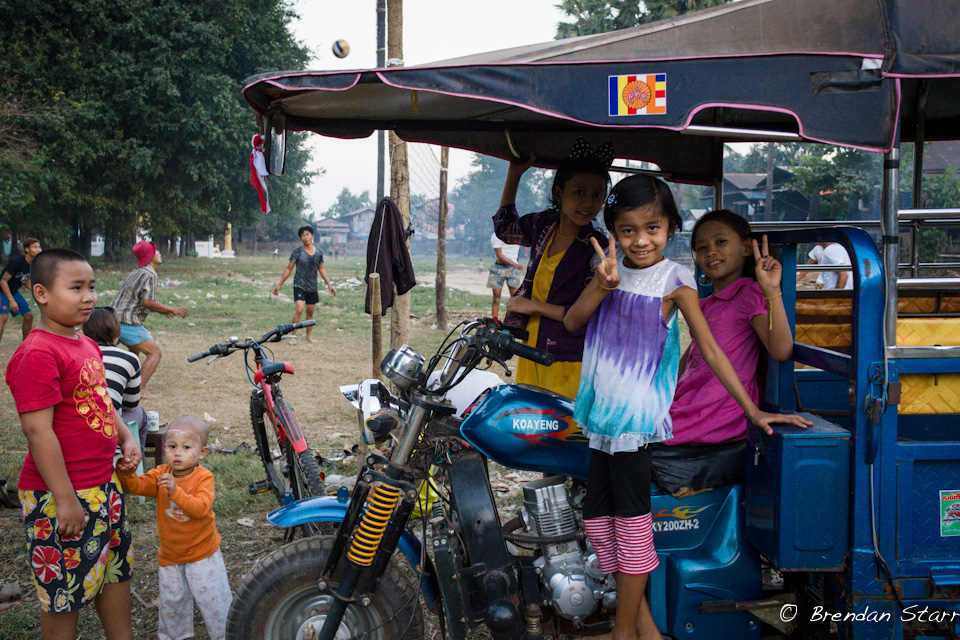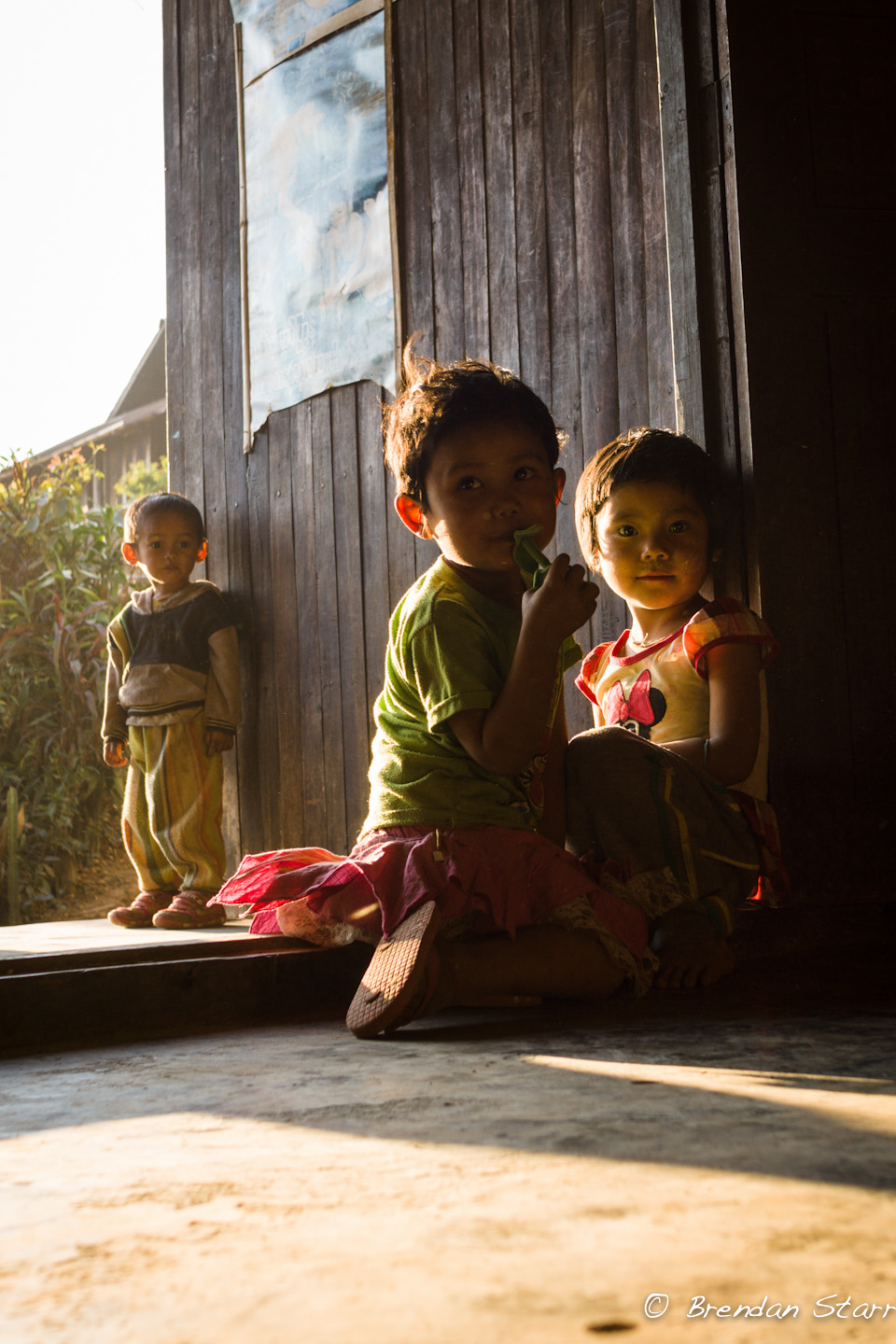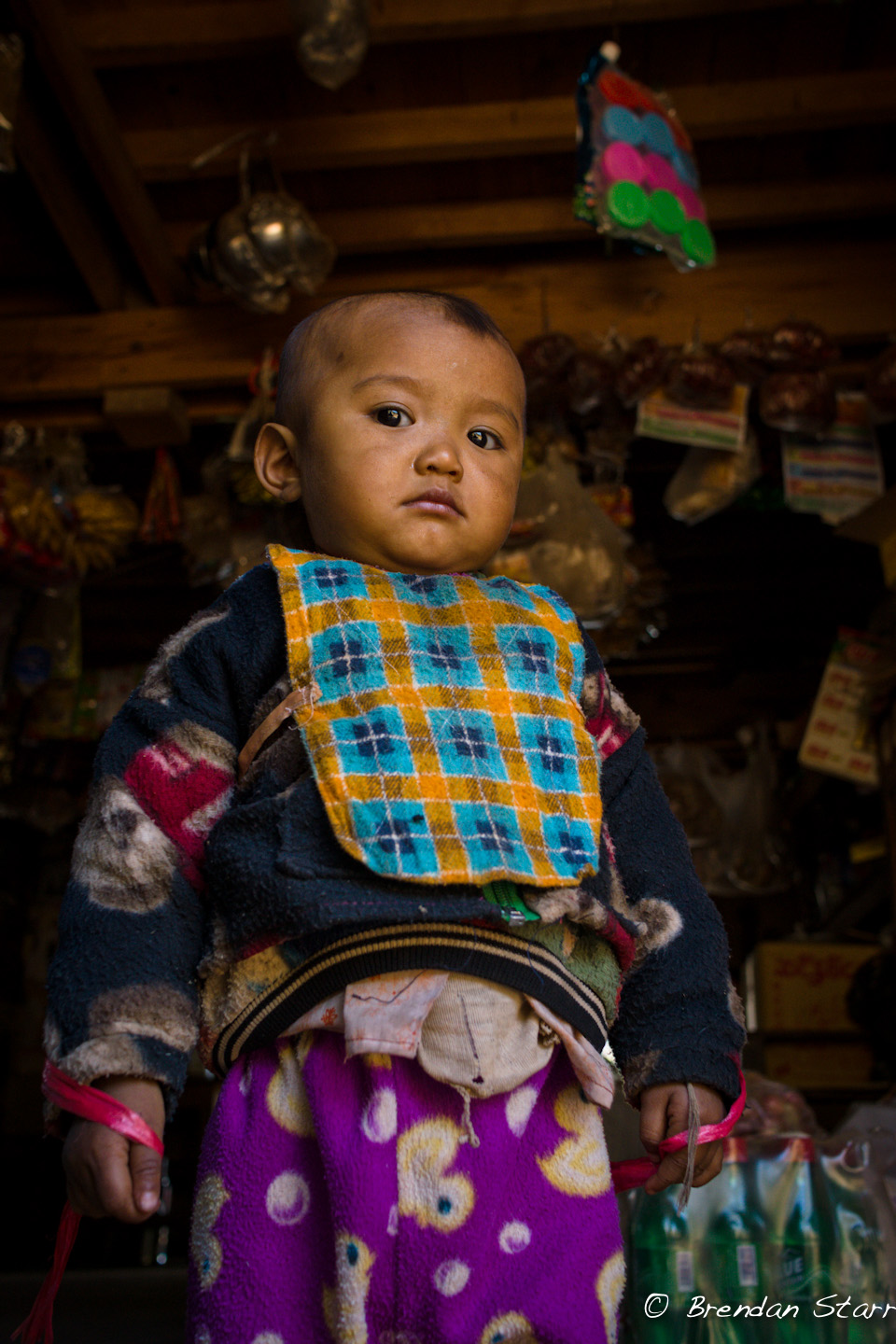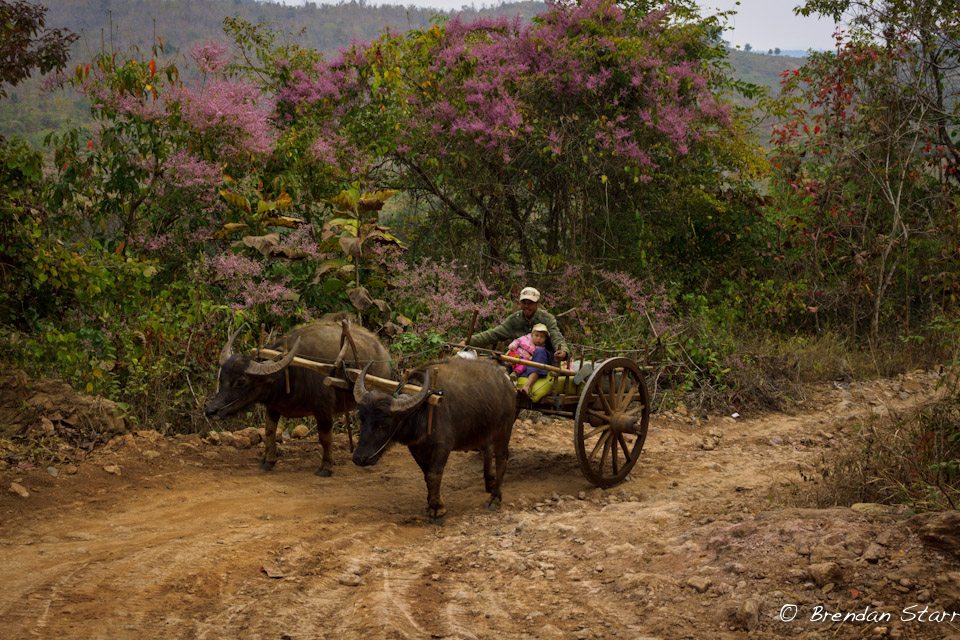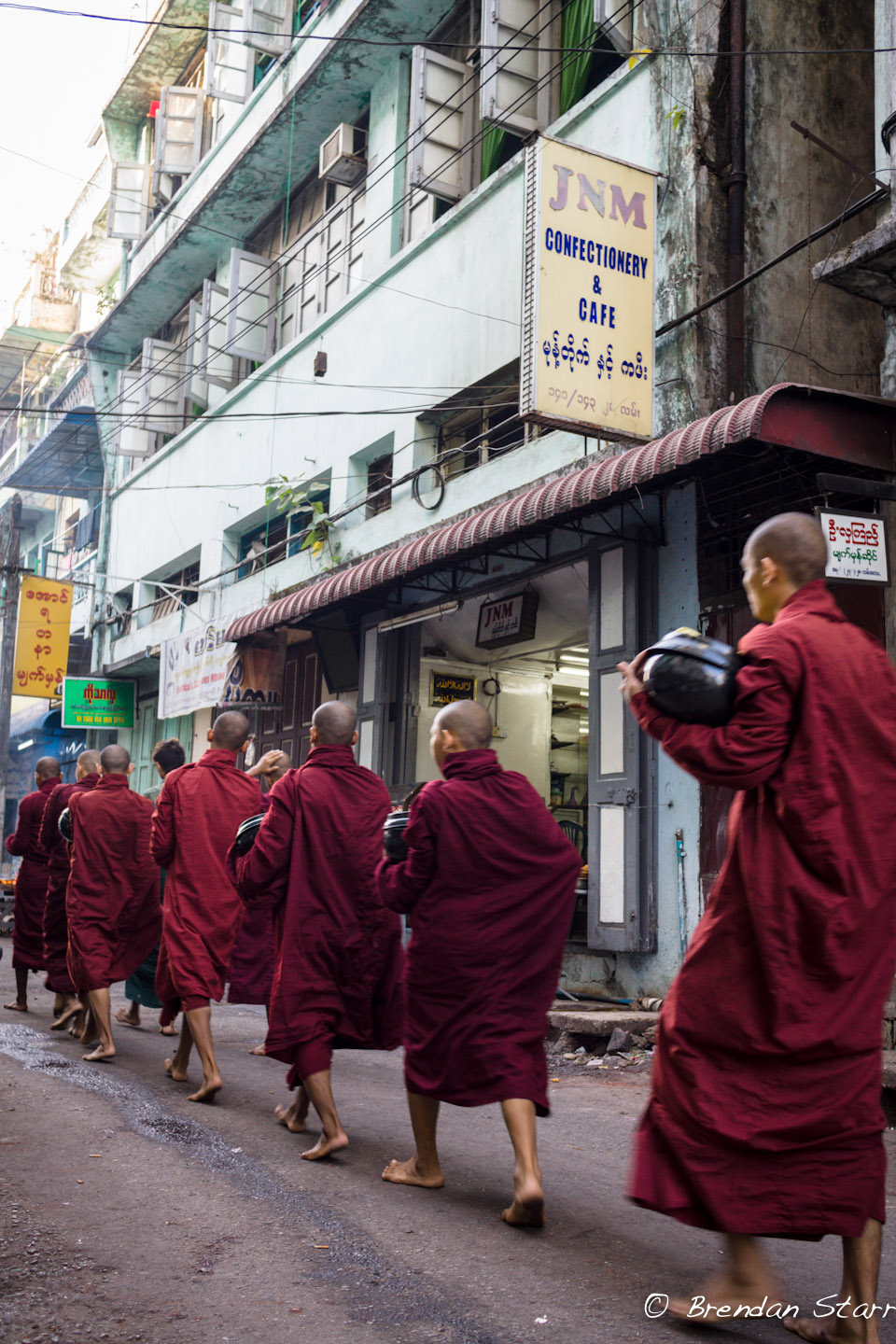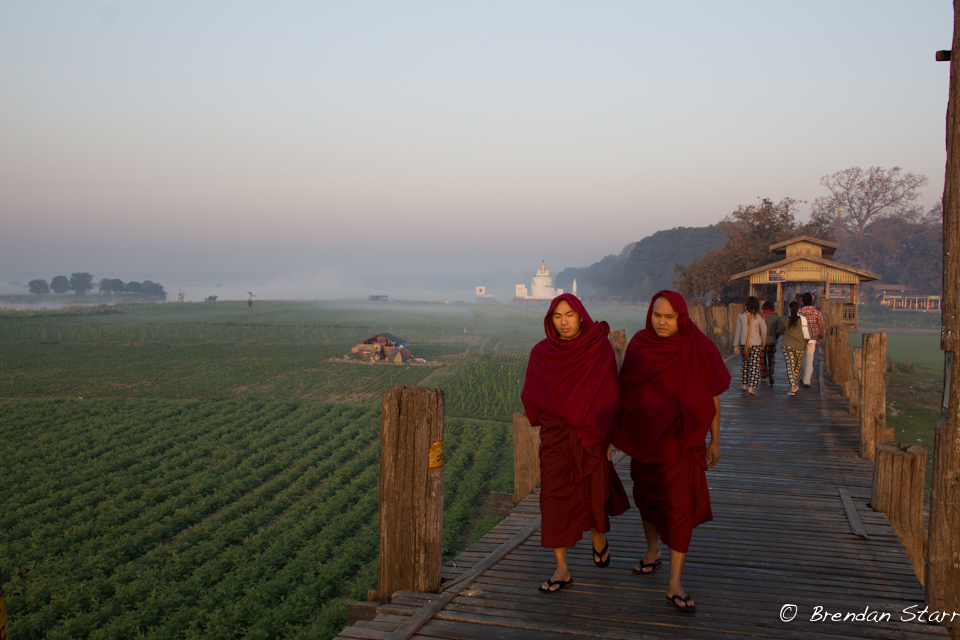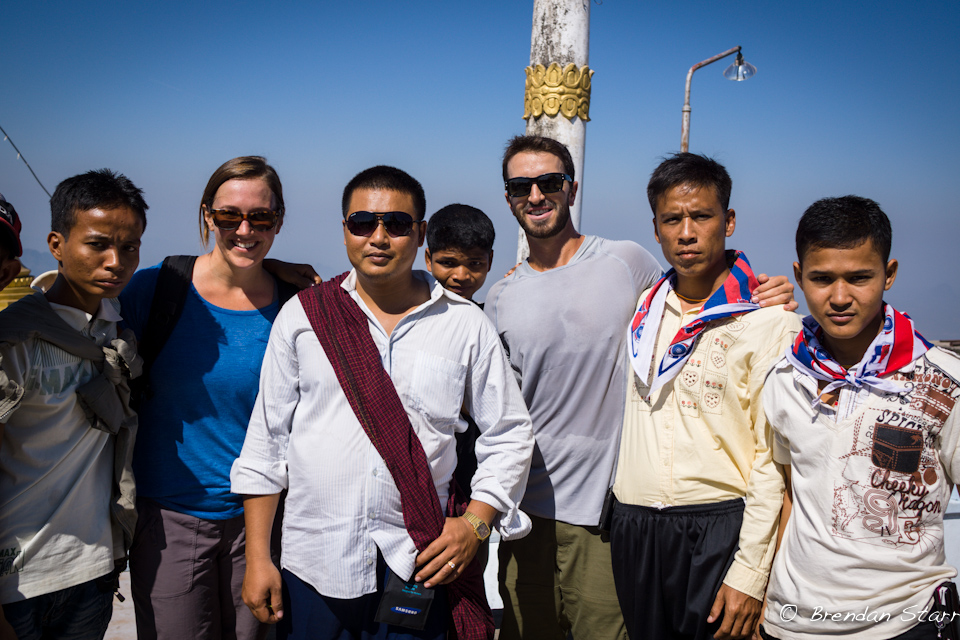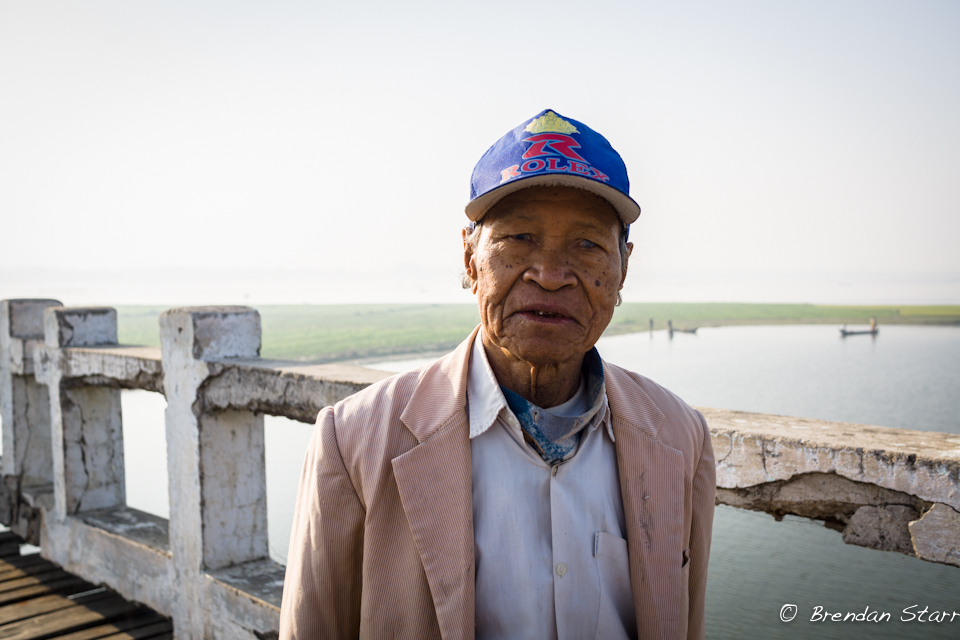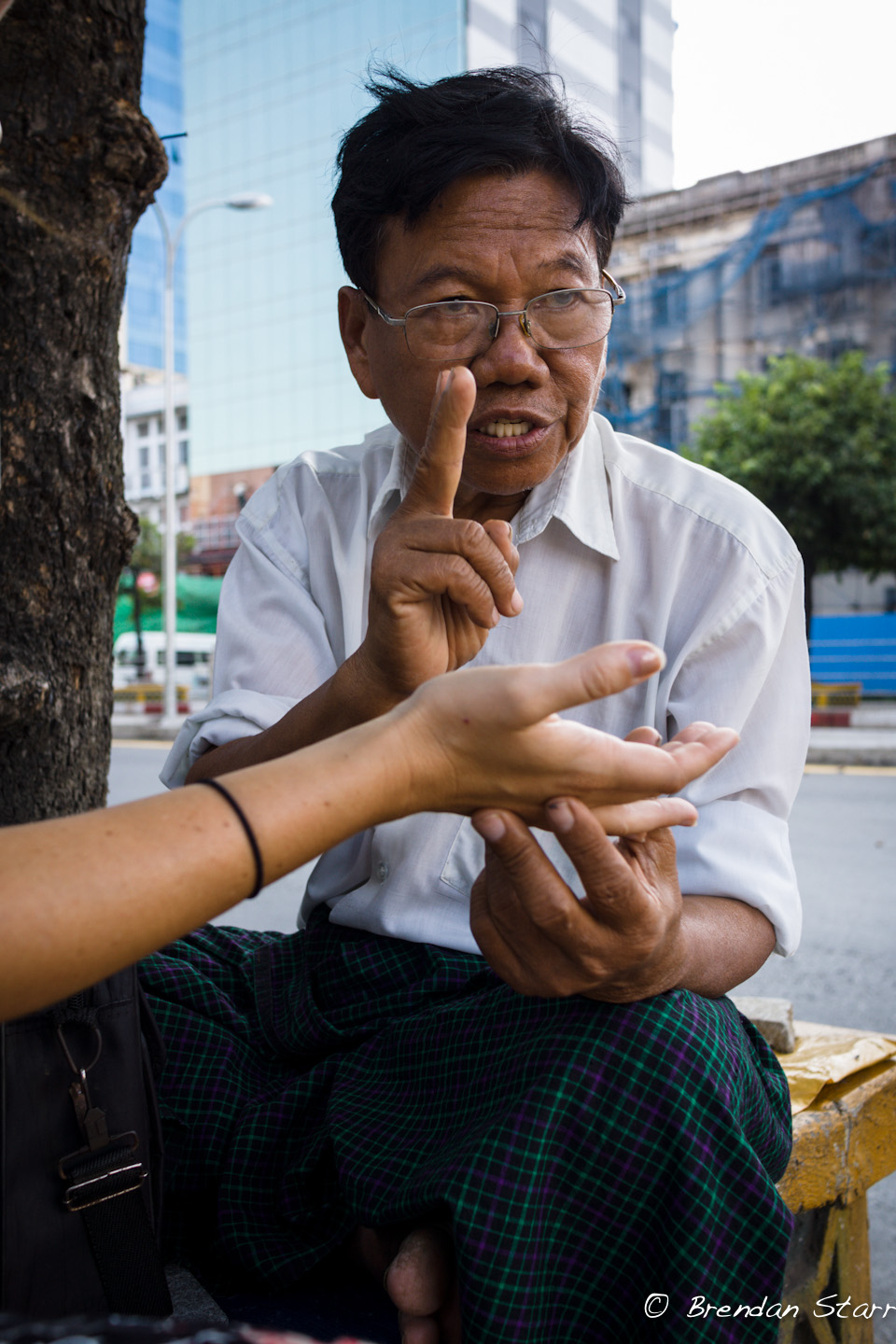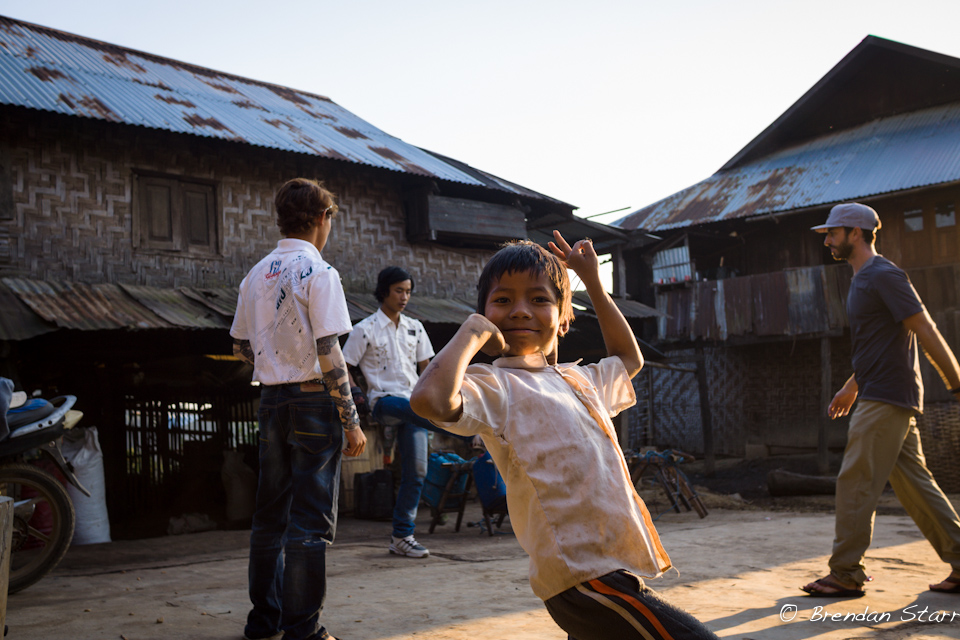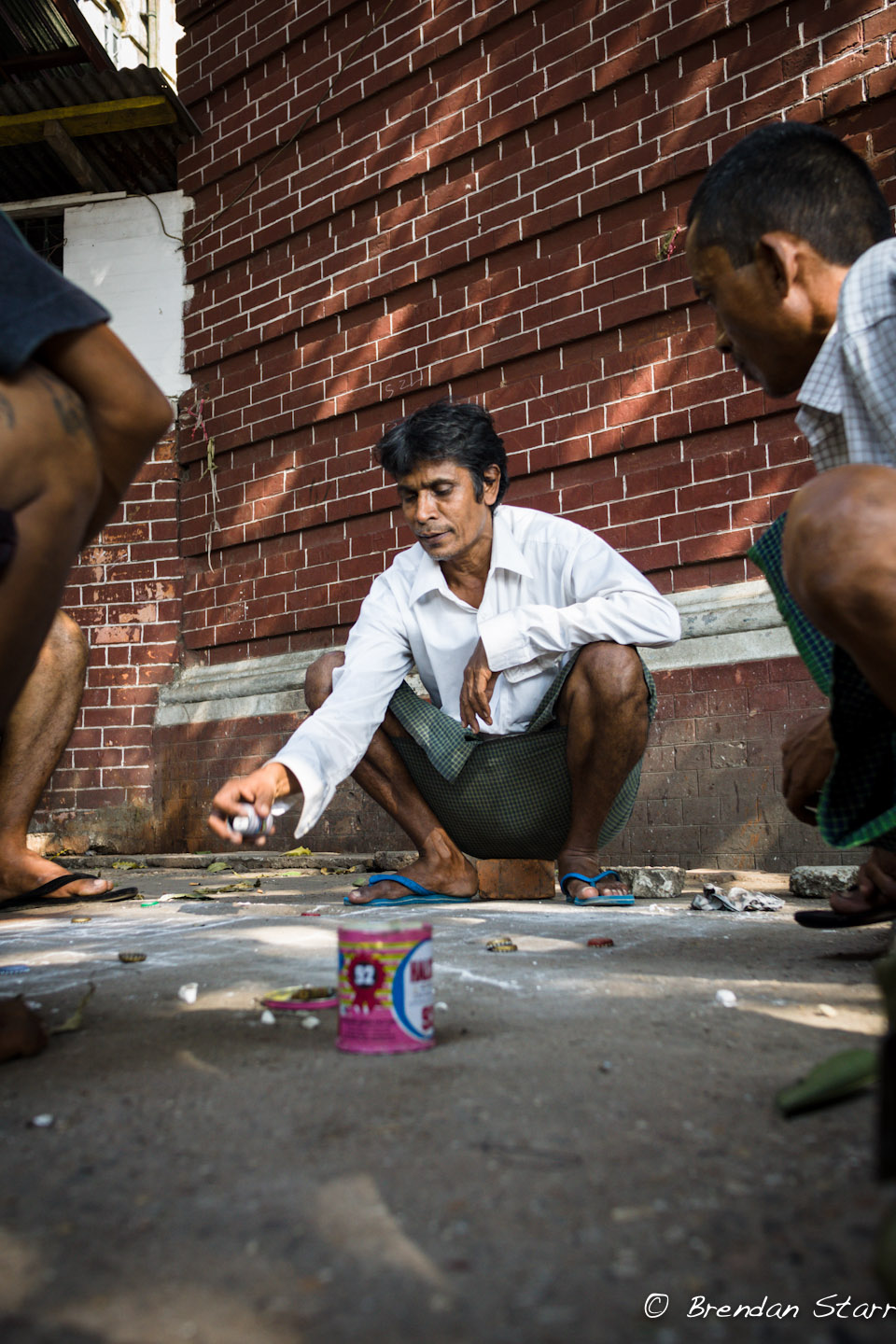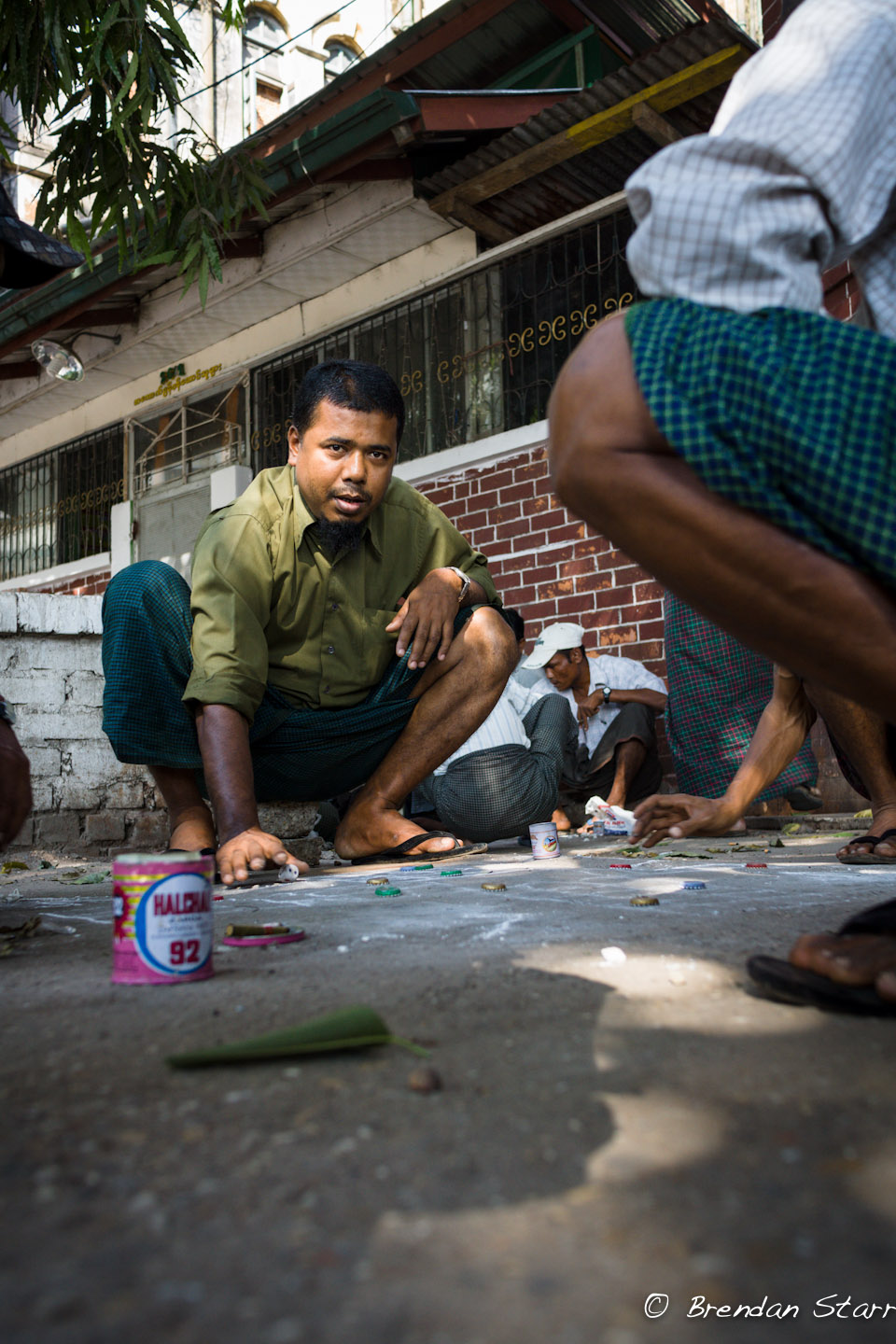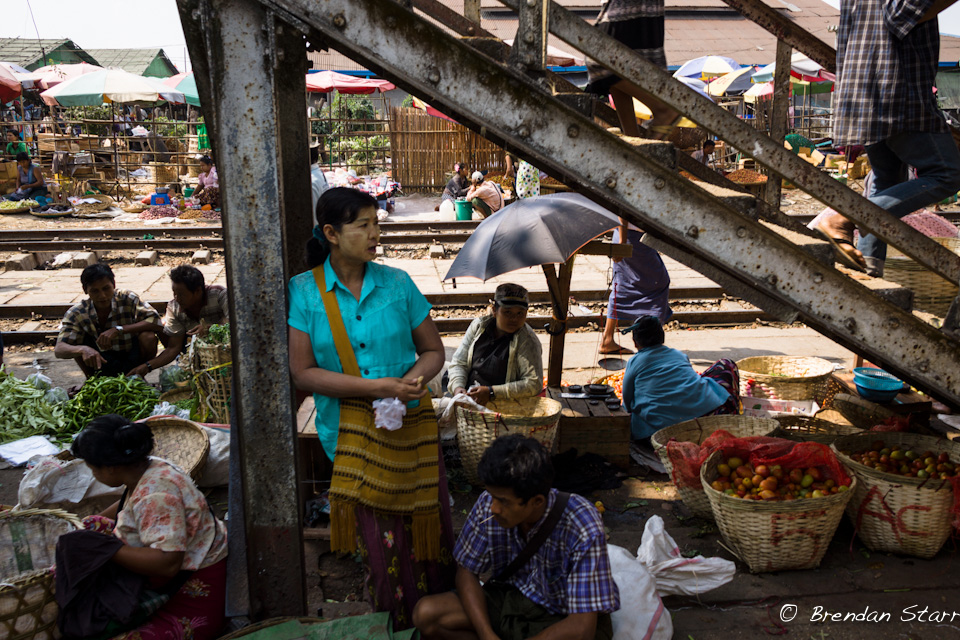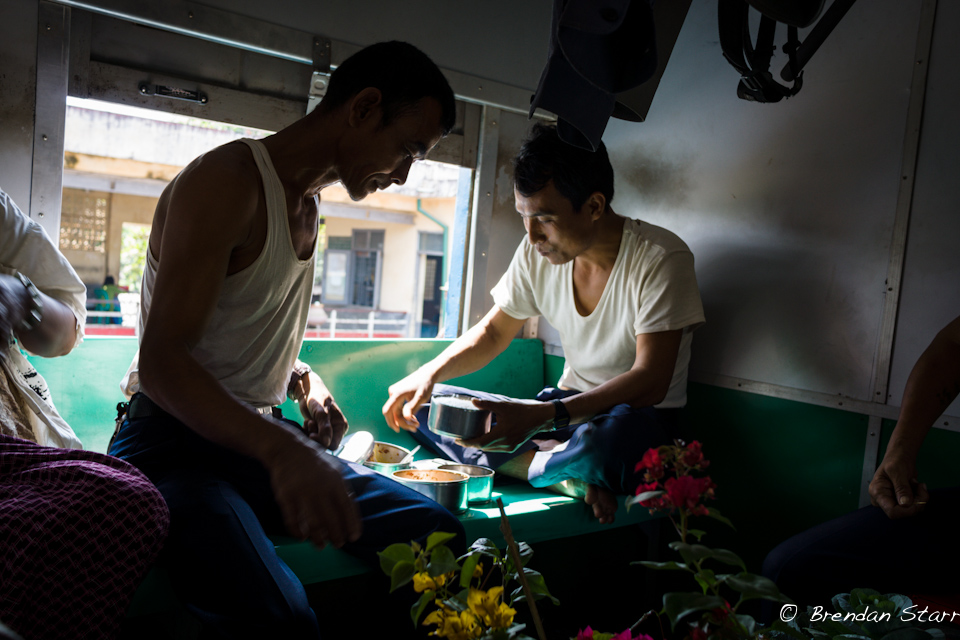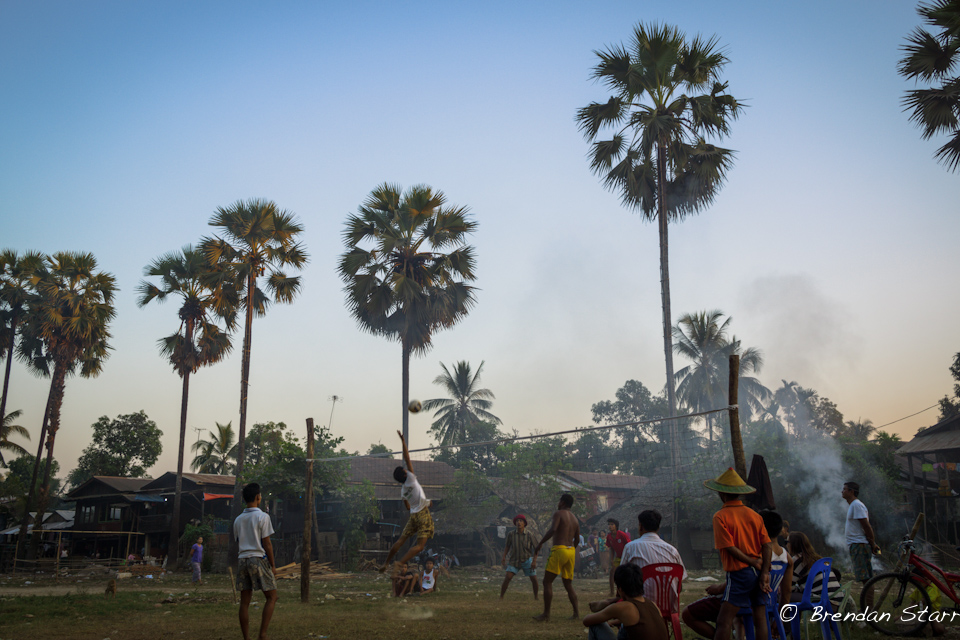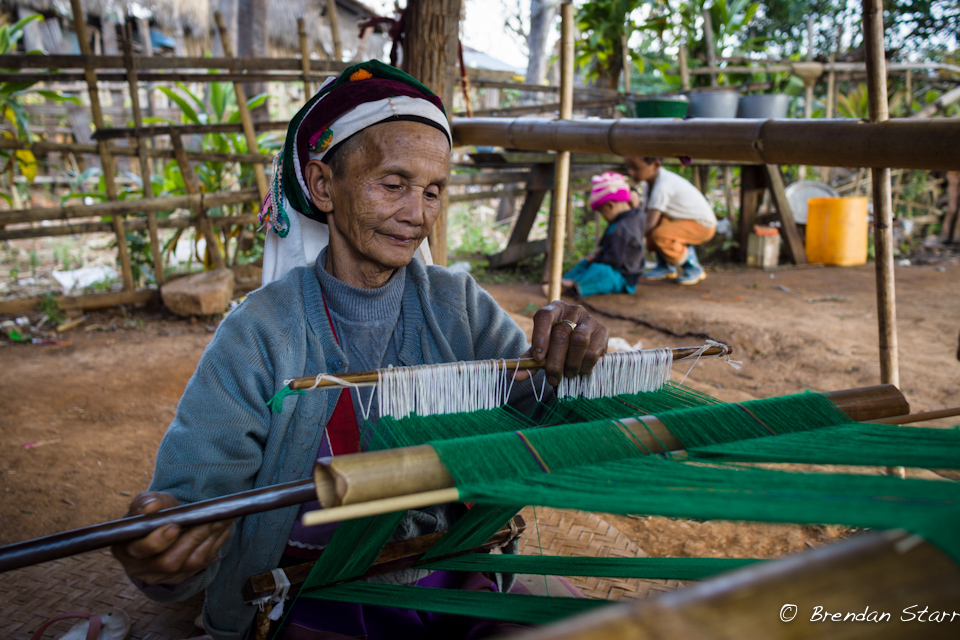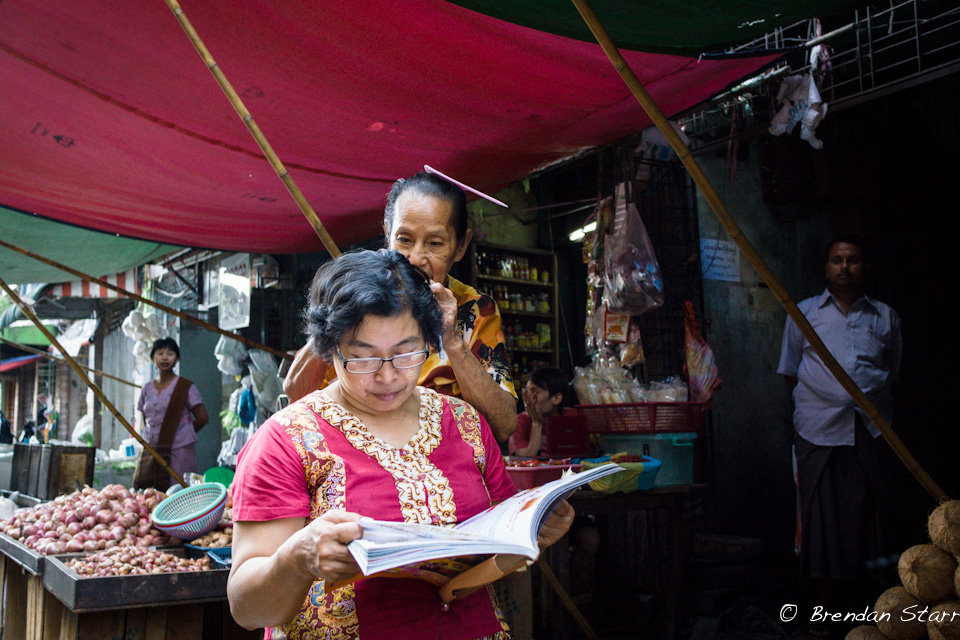Are you happy?
Of all the countries we've visited in SE Asia, Burma has been the most challenging and most rewarding.
Hotel or prison? You make the call.
The former is mostly due to the lack of tourism infrastructure and sparse creature comforts - intermittent power, rough roads, terrible hotels (especially among the budget options), virtually no internet, dust, dirt, grime, rat carnivals*, etc. It's nothing we can't handle, but the sum of it wears you down. Luckily, the good stuff makes it all worth it. And the best stuff in Burma is its people.
Despite a turbulent past and trying present, the Burmese people are wonderfully warm, generous, curious and personable. It's palpable, and we felt it the second we got off the plane in Yangon: smiles, cheerful greetings, conversations, invitations, games, spontaneous singing. We met people from all walks of life, with different backgrounds and different stories, but all over the country they asked us the same question: "Are you happy?". Not "Are you okay?" or "Do you need anything?", but always, without fail, "Are you happy?". And after spending time with so many of these amazing individuals, we think we know the reason. It's because, against all odds, after decades of civil war and oppression, and even in the face of struggle today, they choose to be happy.
We went trekking in Hsipaw, a small hillside town in Northern Burma, with Aike Teng, a.k.a., the happiest man on earth. He sang love songs as he hiked, cracked himself (and us) up with terrible jokes and kept us smiling the whole way. His contagious positive energy even kept me sane (and Brendan unscathed) when I got sick and had to trek four hours on an upset stomach. Aike Teng was born in a small mountain village and was working full days in the tea fields by the time he was nine. Calling it a hard life would be an understatement - out of the house before dawn to be in the treacherously steep tea fields by first light, hours of work in the hot sun and the long walk back to the village with baskets of freshly harvested tea leaves on his back. He went to school when his parents could afford to send him, but was mostly self-taught, reading and talking to any tourist who was willing. After his parents died, it fell to him to care for his two younger siblings. Two months ago, he told us through his trademark ear-to-ear smile, he got the opportunity of a lifetime to become a trekking guide for the growing number of tourists in Hsipaw. Now, he earns just enough money to care for his family and keep his younger brother and sister out of the fields and in school. And maybe one day, if he saves enough, he can marry the woman who inspires the love songs. Until then, he'll keep melting hearts from all over the world on the hills of Hsipaw, one smile at a time.
In Hpa'an, in the south of Burma, we stopped to watch a group of men playing volleyball in a small village just outside of town. Immediately, they invited us to play, leading to two hours of sweating, grunting and attempting to bring back old skills (not to mention several days of sore muscles afterwards). The men spoke about as much English as we spoke Burmese, but with the help of charades and a few elementary school kids who were learning some English in school, we spent two nights eating, drinking, "talking" and laughing with the men. They are from a military family, and are all still active in some way or another, from border patrol to senior leadership. With so much stigma attached to the Myanmar military, we bristled when we learned about their involvement in the organization that's been the cause of so much harm to the Burmese people. But, just like others we'd met, the men wanted to talk about their country, the good and the bad and the changes. They seemed aware of the failures of the past and optimistic about what the future would bring. And, they genuinely wanted to learn more about us (which led to my very Texan version of a US map). The brothers were gracious hosts and we're pretty sure we have an open invitation to stay at their home next time we're in southern Burma. We got a number, but never quite figured out how communication would work over the phone. It didn't seem to matter much at the time, and honestly, it still doesn't. If we showed up at their door in two years, even if they had no idea who we were, they'd invite us in.
Mr. Toe, an English teacher and tour guide in Yangon, stopped us on the street for a quick chat. When we told him we were from the US, he invited us to tea to talk more about Obama's visit to Burma. He, like so many others we met, were overwhelmed and grateful for the visit. Mr. Toe actually attended the President's speech at the University in Yangon and gushed about how Obama learned Burmese for the occasion (hello and thank you, from what we've been told) and how he kissed "The Lady", Aung San Suu Kyi on the cheek. He felt as though Obama was speaking directly to the people, a friend and ally in the struggle. He also attributed many of the recent changes to the city and country to the visit, or at least what it symbolized: Burma exposed and engaged with the outside world. After the politics were set aside, he proceeded to engage the outside world himself by going through our Lonely Planet page by page to give us recommendations for our next stops. No agenda, no sales pitch, just advice from one friend (er, stranger) to another.
On the train in Yangon, we rode in a car with two Burmese police officers. At first we were a bit nervous, not sure about local customs or comfort zones. But, after ten minutes, the officers had us rolling with laughter. They showed us their weapons, slingshots and pellets, and acted out an arrest with another passenger on the train. They shared food and tea and by the end of the three hour ride our stomachs hurt from laughing and eating too much.
We met a PhD outside of Mandalay who came from a family of academics. In the 80s, the government saw an enemy in intellectuals and responded. Universities were shut down, incentives were given for leaving high school to work at state funded farms and scholars were made an example of. The PhD was forced to abandon his current role as a scientist and find work as an admin. His brother was arrested and sentenced to an indefinite prison term for an undefined crime. Eight years later, the brother was released, found a way to leave the country and never looked back. The PhD, on the other hand, stayed. He said he knew his country would one day change and wanted to be a part of it. Standing with him in his museum, back in academia, the smile on his face let us know he was happy about the decision. He sees progress being made from the inside out by people like him, using their strength of character over force. And the fact that he can discuss the past, present and future openly with two Americans made him almost giddy.
On our last morning, walking the U Bien bridge in Mandalay, we met a monk who has devoted the last 18 years of his life to learning and teaching the lessons of the Buddha. He comes to the bridge every morning to exercise and practice his English with tourists. We sat with him for nearly an hour discussing his life, country and beliefs and answering questions about ours. At the end of the conversation, he invited us to his monastery for the afternoon. Brendan and I looked at each other and silently shared a wish, "Can we change our flight?" We were tired, dirty, both on the tail end of being sick and very much looking forward to the comforts of Bangkok, but with a single encounter, we were willing to put all that aside and stay just one more day. Looking back, it was a fitting farewell.
We will never forget the people we met in Burma or their stories, these and so many others. They epitomize strength, generosity, humility, innocence and perseverance and we are humbled by their kind hearts and open minds. For the last five decades, they have survived civil war, military rule, corruption, civil oppression, poverty and global isolation. And, while change is happening, it's a slow struggle rife with complication. The Burmese people have every reason to be angry and cynical, but they choose to be happy. And the effect is contagious.
Back in Kenya, in the first few weeks of our trip, we met a group of Maasai grandmothers who touched our lives deeply, giving so much of themselves when they have so little. Now, with little more than a month until we head home, we are reminded yet again to think hard about our priorities, perspectives and what makes us happy.
*Rat carnival: Dozens of acrobatic rats outside our window our first night in Burma. By far our worst hotel experience of the trip. At one point during the night, I was just crying silently into my pillow. Little did I know, Brendan was doing the same ;).
